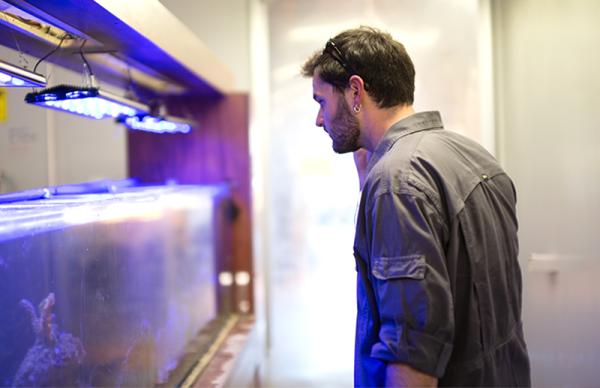
Aquaculture farmer
Aquaculture farmers rear fish and other aquatic livestock such as oysters, marron, crayfish and prawns. They may work in the open seas or in specially prepared areas such as tanks, dams or shallows that contain cages. They inspect the livestock and ensure healthy growing conditions by checking the oxygen levels and temperature of the water, and make sure that it's free from contamination. They determine when to harvest their livestock, and oversee its harvesting, grading and transportation. They also organise the sale of their stock and manage the business side of their farm.
Working conditions
Aquaculture farmers work either in boats on the open sea or in hatcheries. They work in all weather conditions and often need to work early and long hours, particularly during harvesting. They may also spend time in offices undertaking administrative tasks.
Tools and technologies
Aquaculture farmers may operate fishing vessels and the harvesting machinery onboard these vessels. They may also operate tanks, ponds, open-water cages and other enclosures. They may be required to operate scuba equipment if their farming operation requires diving. They also use ropes, knives, winches, hydraulic machinery and fish-feeding machinery.
Education and training
To become an aquaculture farmer, you usually need to gain a qualification in aquaculture, marine science or a related area.
The Certificate II, III and IV in Aquaculture and Diploma of Aquaculture are offered at TAFE colleges throughout Western Australia. Browse courses through Jobs and Skills WA and search on the My Skills website to find a registered provider near you.
You can also undertake a traineeship in seafood (aquaculture) (level 2, level 3 or level 4). The traineeships usually take 12 to 36 months to complete and the level 2 traineeship is available as a school-based traineeship.
You can also undertake a university degree with a major in marine science, marine and freshwater biology or a related area.
Most universities in Western Australia offer relevant courses. Contact the universities you are interested in for more information.

Free support and assistance
Your local jobs and Skills Centre can provide free information, support and assistance to help you decide on the best training options to meet your goals.
Disclaimer
The information presented on the occupation profiles within this website is offered as a guide only.


